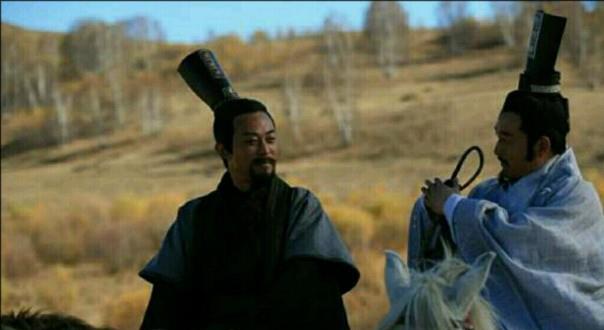The State of Qin, from a semi-nomadic tribe that herded horses, after hundreds of years of bloody struggle, killed a bloody road from the siege of Rong Di, and fought for the sixth Yu Lie, established the first great unified dynasty in Chinese history. But it was one of the most powerful empires in the world at the time, but it took only 14 years to perish.
There are many reasons for the collapse of the Qin Dynasty, but one is crucial, that is, in the issue of heirs. This involves an age-old mystery: how did Fu Su, the eldest son of Qin Shi Huang, die?

Maybe a friend will say: nonsense, of course, suicidal. But things are obviously not so simple, let's see what is illogical about Fu Su's death process.
In 210 BC, Qin Shi Huang died violently on his last cruise in the present-day city of Xingtai, Hebei Province. Zhao Gao and Li Si launched a dune coup and issued a false edict accusing Gongzi of helping Su Shubian for more than ten years and not being able to go forward, asking him to commit suicide and apologize. This is the whole course of events as we know it.
But one thing is often overlooked, Fu Su is the eldest son of Qin Shi Huang, holding 300,000 male soldiers. But Zhao Gao seems to have selectively ignored this. You must know that the only army that Zhao Gao and Li Si can control is the guards who are currently accompanying Qin Shi Huang's left and right, and they are definitely not the opponents of these field armies that have fought against the Xiongnu for more than ten years.
Just after the false edict of death to Fu Su was issued, Zhao Gao planned a return route, from Taiyuan to Shangjun, and then along the straight road to Xianyang, which was where Fusu and Mengtian were stationed. This is even more the rhythm of death, if Fu Su is suspicious and meets Qin Shi Huang, who is close at hand, to verify the authenticity of the edict, then Zhao Gao will undoubtedly die.
When the whole thing happens, three conditions must be met: 1. Fu Su believes that killing him is the original intention of Qin Shi Huang; 2. Fu Su will not meet Qin Shi Huang; 3. Meng Tian's persuasion is ineffective.
Of these three conditions, the first one is not very difficult to achieve, but the last two Zhao Gao and Li Si cannot be controlled. Because at the first moment of receiving the false edict, Meng Tian became suspicious, believing that the emperor was out on patrol and had not appointed a prince, and I led 300,000 troops to fight here, and the prince, as a supervisor, had a heavy responsibility, how could he commit suicide with only one messenger and one edict? Please check it.
If Fu Su had followed Meng Tian's advice at that time, then Zhao Gao and Li Si's plot would have collapsed. In this way, Zhao Gao and Li Si were already "stupid" enough to think that they could kill the commander of 300,000 troops with just one letter.
However, Fu Su's performance is obviously more "silly", and in the case that Meng Tian has clearly pointed out the doubts, he still chose to commit suicide according to the plot set by Zhao Gao, giving up power space for his younger brother Hu Hai.
Why did it end up like this?
A passage from the Chronicle of History may solve the mystery: after Hu Hai succeeded to the throne, Meng Tian's younger brother Meng Yi was imprisoned for "the first king wanted to make a prince and Qing Was difficult." The present prime minister regards Qing as unfaithful, sinful and his sect. "What do you mean?" That is to say, Qin Shi Huang wanted to make a prince, and you repeatedly expressed your opposition, so you were punished.
You know, the "prince" mentioned here does not refer to Fu Su, but to Hu Hai. If Meng Yi was opposed to making someone else a prince, then for Hu Hai, there was no harm, and there was no reason to punish Meng Yi.
Therefore, history may have had another situation, that is, Hu Hai was also one of the heirs considered by Qin Shi Huang. When Fu Su received the edict of death, what he saw was clearly the deep meaning behind the edict: his father had decided to make Hu Hai the crown prince, as the eldest son and the overseer of the 300,000-strong army, only death would not threaten the new king.
But what Fu Su did not expect was that Qin Shi Huang changed his mind before his death, and ordered him to return to Xianyang to preside over the funeral (meaning to succeed to the throne), but unfortunately, this edict was not issued in time, and Qin Shi Huang died of illness.